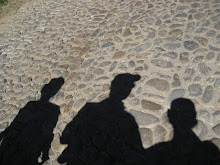Ok, ok, ok. So during the entirety of this week and last week for that matter, we have been looking at Europe during the 1800's. Right? When I sat down to study for the test a couple nights ago, I realized that this period in time was IMMENSELY CHAOTIC with lots of revolts, changes in authority, independence, revoked independence, unification, etc... Nationalism proved to be an 'ism' that can conform and mold to any other group of people that care to use it- that means liberals, conservatives, and socialists all used nationalism for their own needs. We've learned in class numerous times that before 1848- bottom up nationalism was used and after 1848- top down nationalism was used because conservatives began to take charge. There was also a big shift in the balance of power due to the unification of both Italy (under Cavour) and Germany (under Bismarck), and because of the "emergence of the United States as a major power" (780). The Crimean War, in my opinion, provided a needed shock to Russia since their giant inflated head had grown a little too large- and this war dealt a blow to Russia since their influence in the Balkans was 'drastically curbed' (776). The war was also important because Austria lost the support of Russia (therefore both Russia and Austria were weakened,which made it easier for Bismarck in the 1860's), Romania was formed from Moldavia and Walachia, new innovations in warfare were used, this was also the first war that was covered by photojournalists- which made it the most public war to date, and finally after this war- serfdom was abolished in Russia (which had a very similiar affect to the Enclosure Acts in Britain).
We mustn't forget art! Romanticism with its emotions, nature, uniqueness, cult-ness, eroticism, exoticism, nostalgia for the way things were, macabre, rebellion against conformity, and individual-ness. I realize that that list is a bit strange, but those are the words that come to mind when I think of romanticism. Then came realism which "signaled a strict rejection of artistic conventions and read-made formulas in favor of what artists saw as more honest, objective, and authentic representations of the world" (778). Realism was all about the 'empirical reality' where artists focused more on the empirical facts instead of the imagination and emotions (like Romanticism) (778).
Overall, this period showed us that Europe was not a stable place around 1870ish with the "Eastern Question" still not yet answered, a change in the balance of power in Europe, and nationalism still a strong tool to be used!! What will happen next??

No comments:
Post a Comment